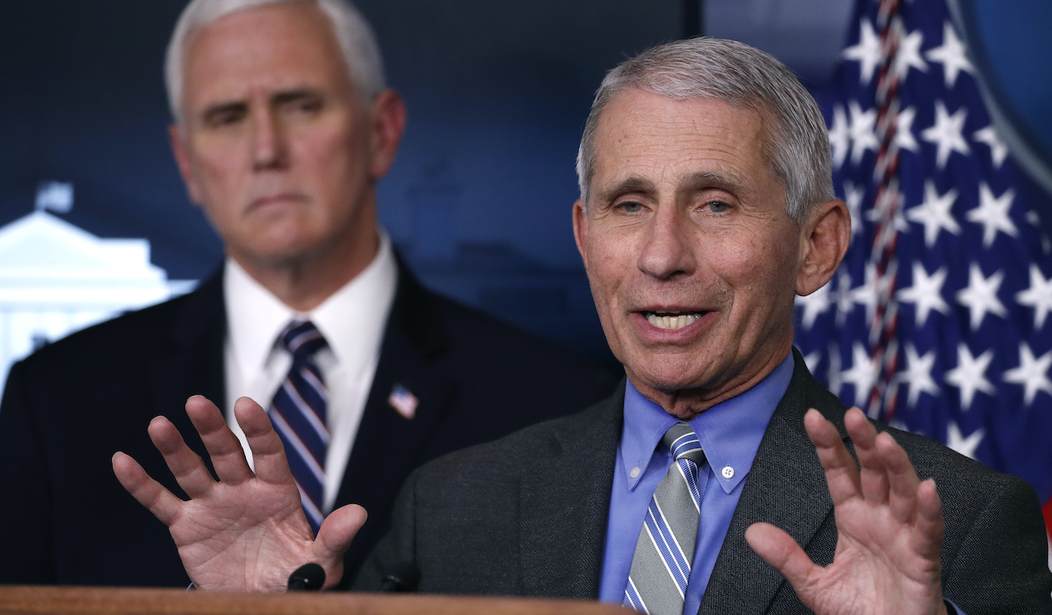Dr. Anthony Fauci, the Director of the National Institute of Allergy and Infectious Diseases (NIAID) and a member of the White House Coronavirus Task Force, said it is possible that some individual institutions will require the COVID vaccine. There is also the potential for a vaccine requirement in order to travel to other countries, Fauci told Newsweek.
Whether or not "vaccine passports" will come to fruition or schools will require kids to have the coronavirus vaccine are yet to be seen, although "everything will be on the table for discussion." It is important to note that Dr. Fauci has not ruled out the possibility of making these requirements mandatory. He is set to serve as President-elect Joe Biden's chief medical adviser, meaning his recommendations are likely to become the administration's rule.
"It's not up to me to make a decision. But these are all things that will be discussed," Dr. Fauci explained, referring to the incoming administration.
He did, however, say a nationwide vaccine mandate is unlikely.
"We almost never mandate things federally [with regards to health," the NIAID head said. "I'm not sure it's going to be mandatory from a central government standpoint, like federal government mandates."
Although a COVID vaccine may not be a federal requirement, it could be required for health care workers.
"But there are going to be individual institutions that I'm sure are going to mandate it. For example, influenza and Hepatitis B vaccines are mandated at many hospitals. Here at the NIH [National Institutes of Health], I would not be allowed to see patients if I didn't get vaccinated every year with flu and get vaccinated once with Hepatitis. I have to get certified every year…if I didn't, I couldn't see patients," Dr. Fauci explained to Newsweek. "So in that regard I would not be surprised, as we get into the full scope of vaccination, that some companies, some hospitals, some organizations might require vaccination."
Recommended
There is a very real probability that schools could require children to get vaccinated in order to attend in-person classes once again, but the possibility is determined on a state and local level.
"That is possible but that's something that's mandated at the state level and city level. A citywide school system might require it in some cities but not other cities," he said. "And that's what I mean by things not being done centrally but locally."
Although Americans are beginning to get vaccinated, Fauci reiterated his concern about "public health measures," like social distancing and mask wearing going out the window. The reason: health care officials are still unsure whether or not the vaccine prevents the coronavirus from being transmitted from one person to another.
"That's the reason why I keep saying that even though you get vaccinated, we should not eliminate, at all, public health measures like wearing masks because we don't know yet what the effect [of the vaccine] is on transmissibility," he said.
Last week, Dr. Fauci blamed individual states' response to the pandemic as a reason the United States has been hit harder than any other country.
"The states are very often given a considerable amount of leeway in doing things the way they want to do it, as opposed to in response to federal mandates, which are relatively rarely given," the head of the NIAID explained.
"Although that works well for certain things, when you’re dealing with a pandemic, which doesn’t know the difference between the border of New York and New Jersey, or Florida and Georgia, or Texas and Oklahoma ... you have to have a degree of consistency in your response," he explained.
"What we’ve had was a considerable disparity with states doing things differently in a non-consistent way. There have been a lot of factors that have led to the fact that, unfortunately for us, the United States has been the hardest hit country in the world, but I believe that disparity among how states do things has been a major weakness in our response," he said.

























Join the conversation as a VIP Member